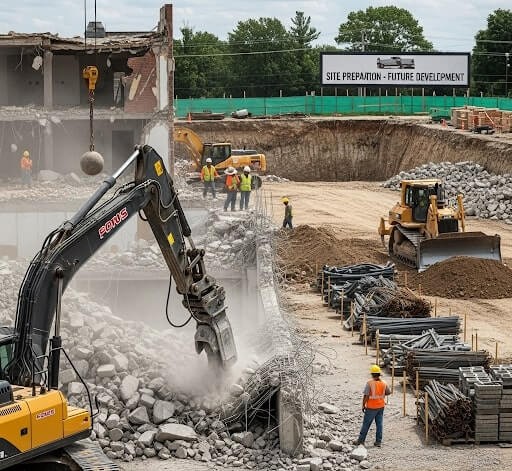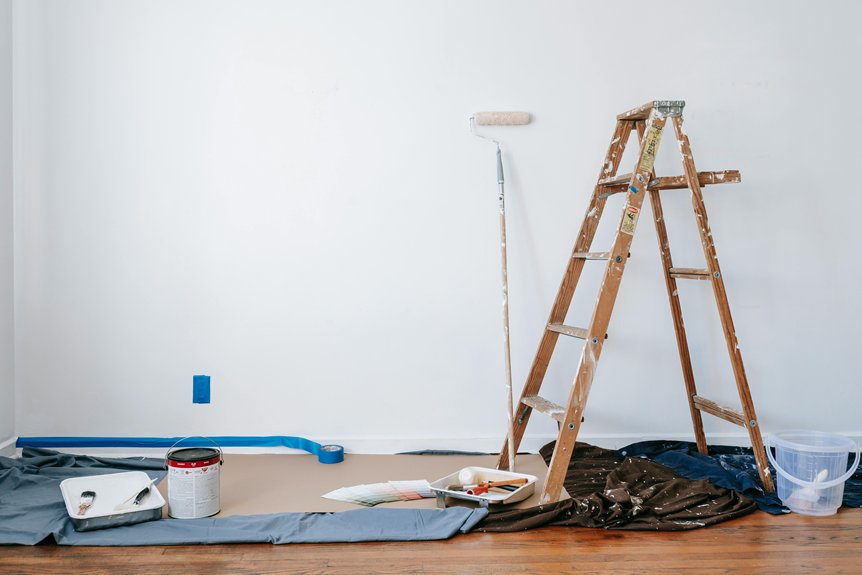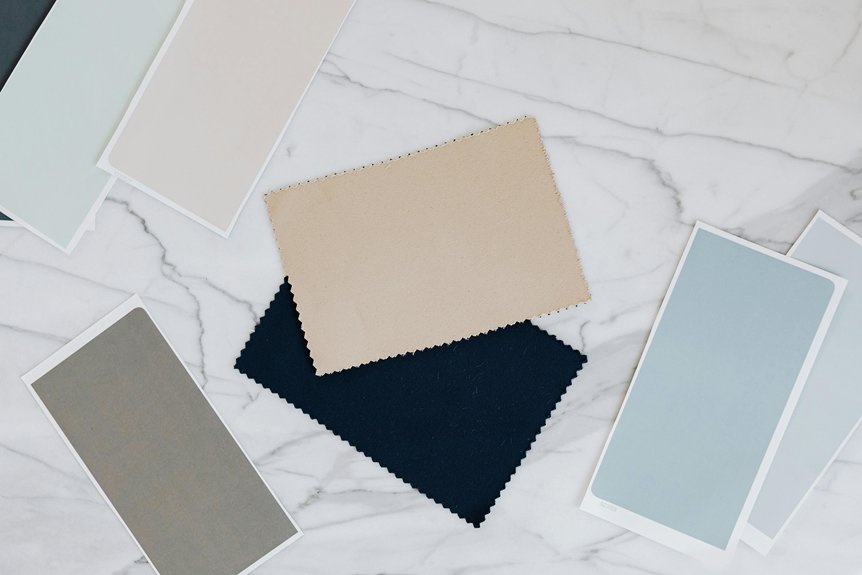When you’re starting a full home renovation in Washington DC, it’s essential to grasp the various costs involved. From permit fees to contractor expenses, each element plays a significant role in your overall budget. You’ll want to account for design and material choices, along with the potential for unexpected expenses. Understanding these estimates can help you prepare for what’s ahead, but do you know how to prioritize them effectively?
Key Takeaways
- Permit and regulation costs can range from several hundred to thousands of dollars, depending on the scope of renovations in Washington DC.
- Design and architectural fees typically account for 5% to 15% of total renovation costs, impacting both aesthetics and functionality.
- Allocate 10-20% of the total budget for unexpected expenses, as structural issues and permitting fees can arise during renovations.
- Labor costs vary based on contractor skill and experience; understanding fee structures is crucial for accurate budgeting.
- Material costs fluctuate significantly; sourcing quality materials early can mitigate delays and budget overruns.
Permit and Regulation Costs
When planning a home renovation in Washington DC, you should budget for permit and regulation costs, which can range from a few hundred to several thousand dollars, depending on the scope of your project.
Start by researching the necessary permit applications for your specific renovations. Each project may require compliance with zoning regulations, which dictate what changes are permissible in your area.
Failing to secure the right permits can lead to costly fines or project delays. To streamline the process, consider consulting with a local expert who understands the intricacies of DC’s permitting landscape and can guide you through the requirements effectively.
Design and Architectural Fees
While you might be enthusiastic to plunge into your home renovation, don’t overlook the importance of design and architectural fees, which can greatly influence your overall budget.
Hiring a skilled designer or architect can help you navigate current design trends and guarantee your project aligns with your desired architectural styles. Fees typically range from 5% to 15% of your total renovation costs, depending on the complexity of your project.
Investing in professional guidance not only enhances aesthetics but also improves functionality, making your home a more enjoyable space.
Plan accordingly to avoid budget surprises and achieve your vision seamlessly.
Contractor and Labor Expenses

After securing the right design and architectural guidance, the next significant factor to contemplate in your home renovation budget is contractor and labor expenses.
Proper contractor selection and effective labor negotiations can save you both time and money. Here are key considerations:
- Contractor Fees: Understand the fee structure—hourly rates vs. fixed bids.
- Labor Costs: Factor in the skill level and experience of the labor force.
- Permitting Fees: Don’t forget to include costs for necessary permits.
- Contingency Funds: Set aside 10-20% for unexpected labor expenses during the project.
Material Costs
When planning your renovation, understanding material costs is essential.
You’ll find that different types of materials come with varying price tags, and opting for higher quality can greatly impact your budget.
Additionally, sourcing issues in Washington DC can affect availability and pricing, so it’s wise to research your options thoroughly.
Types of Materials
Choosing the right materials for your home renovation in Washington DC greatly impacts both your budget and the overall aesthetic of your project.
Prioritizing quality can lead to a more satisfying outcome. Here are four types of materials to evaluate:
- Sustainable materials: Eco-friendly options like bamboo or reclaimed wood can enhance your home’s charm while being environmentally responsible.
- High-end finishes: Luxurious countertops or designer tiles elevate your space.
- Durable flooring: Options like hardwood or luxury vinyl provide longevity and style.
- Energy-efficient windows: Invest in windows that improve insulation and reduce energy costs.
Price Variations by Quality
While planning your home renovation, it’s vital to recognize that price variations in materials can greatly influence your overall budget.
The quality impact of your material selection directly affects both durability and aesthetics. For instance, high-quality hardwood flooring may come with a higher upfront cost but offers longevity and a timeless appeal.
Conversely, opting for lower-cost materials might save money initially but could lead to more frequent repairs and replacements.
Balancing your budget with the right quality guarantees you achieve the desired look and longevity, making informed decisions essential to a successful renovation project.
Prioritize wisely to maximize your investment.
Sourcing and Availability Issues
Although you might’ve a clear vision for your renovation, sourcing materials can present significant challenges that affect costs. Fluctuations in the supply chain and high market demand often lead to unexpected price increases and delays.
To navigate these issues effectively, consider the following:
- Research Local Suppliers: Know which suppliers have the materials you need.
- Order Early: Anticipate lead times to avoid last-minute rushes.
- Stay Flexible: Be open to alternative materials if specific items are unavailable.
- Monitor Trends: Keep an eye on market trends to predict price changes.
These strategies can help mitigate sourcing challenges.
Demolition and Site Preparation

Before you can bring your renovation vision to life, effective demolition and site preparation are essential steps that lay the groundwork for your project. Understanding various demolition methods—like selective and total demolition—ensures you choose the right approach for your space. Site preparation involves clearing debris, leveling the ground, and making sure utilities are properly managed.
Here’s a quick overview of costs and considerations:
| Task | Estimated Cost | Time Frame |
|---|---|---|
| Demolition | $1,500 – $5,000 | 1 – 3 days |
| Site Preparation | $500 – $2,500 | 1 – 5 days |
| Permits | $100 – $500 | 1 – 2 weeks |
Interior Finishes and Fixtures
When it comes to transforming your space, choosing the right interior finishes and fixtures can considerably impact both aesthetics and functionality.
Focus on these key elements to enhance your home:
- Kitchen cabinetry: Opt for durable materials and stylish designs that match your theme.
- Bathroom fixtures: Select modern faucets and showerheads that improve both usability and water efficiency.
- Flooring materials: Choose options that balance comfort, durability, and maintenance.
- Lighting: Incorporate layered lighting solutions to create ambiance and highlight design features.
These choices not only elevate your home’s look but also enhance your daily living experience.
Unexpected Contingency Budget
When planning your renovation budget, it’s essential to account for unexpected expenses that can arise at any moment.
From hidden structural issues to last-minute design changes, these surprises can considerably impact your overall costs.
Building in a contingency budget not only prepares you for these uncertainties but also gives you the flexibility to adapt as needed.
Common Unexpected Expenses
While planning your home renovation in Washington DC, it’s essential to account for common unexpected expenses that can arise during the project.
These hidden costs often catch homeowners off guard, leading to significant renovation pitfalls.
Here are four unexpected expenses you should consider:
- Structural issues: Discovering problems with the foundation or framing can lead to costly repairs.
- Permitting fees: Additional permits may be required, driving up costs.
- Electrical upgrades: Outdated wiring might necessitate upgrades for safety and compliance.
- Material price fluctuations: Prices for materials can change unexpectedly, impacting your budget.
Stay prepared!
Budgeting for Surprises
A well-planned renovation can quickly turn into a financial headache without a solid contingency budget. Set aside at least 10-20% of your total renovation costs as a budget cushion to handle unexpected expenses like plumbing issues or structural repairs.
This emergency fund acts as a safety net, ensuring you won’t have to compromise on quality or rush decisions. When planning, consider potential surprises based on your home’s age and condition.
Importance of Flexibility
Flexibility is essential during a home renovation, as projects often encounter unanticipated challenges that can impact both timelines and budgets.
To guarantee you’re prepared, consider these strategies:
- Create a flexible budgeting plan: Allocate an extra 10-20% for unforeseen expenses.
- Set adaptable timelines: Allow for delays by building extra time into your schedule.
- Communicate regularly: Stay in touch with your contractor for updates on any potential issues.
- Be open to changes: Adjust your plans as necessary to accommodate new discoveries or ideas.
Being flexible will help you navigate the complexities of your renovation smoothly.
Conclusion
To sum up, planning your home renovation in Washington DC requires careful consideration of these seven essential estimates. By understanding permit costs, design fees, contractor expenses, and material prices, you can create a realistic budget. Don’t forget to account for demolition, interior finishes, and a contingency fund for surprises. Staying organized and flexible throughout the process will help guarantee your renovation runs smoothly. With the right preparation, you’ll transform your space into your dream home.




